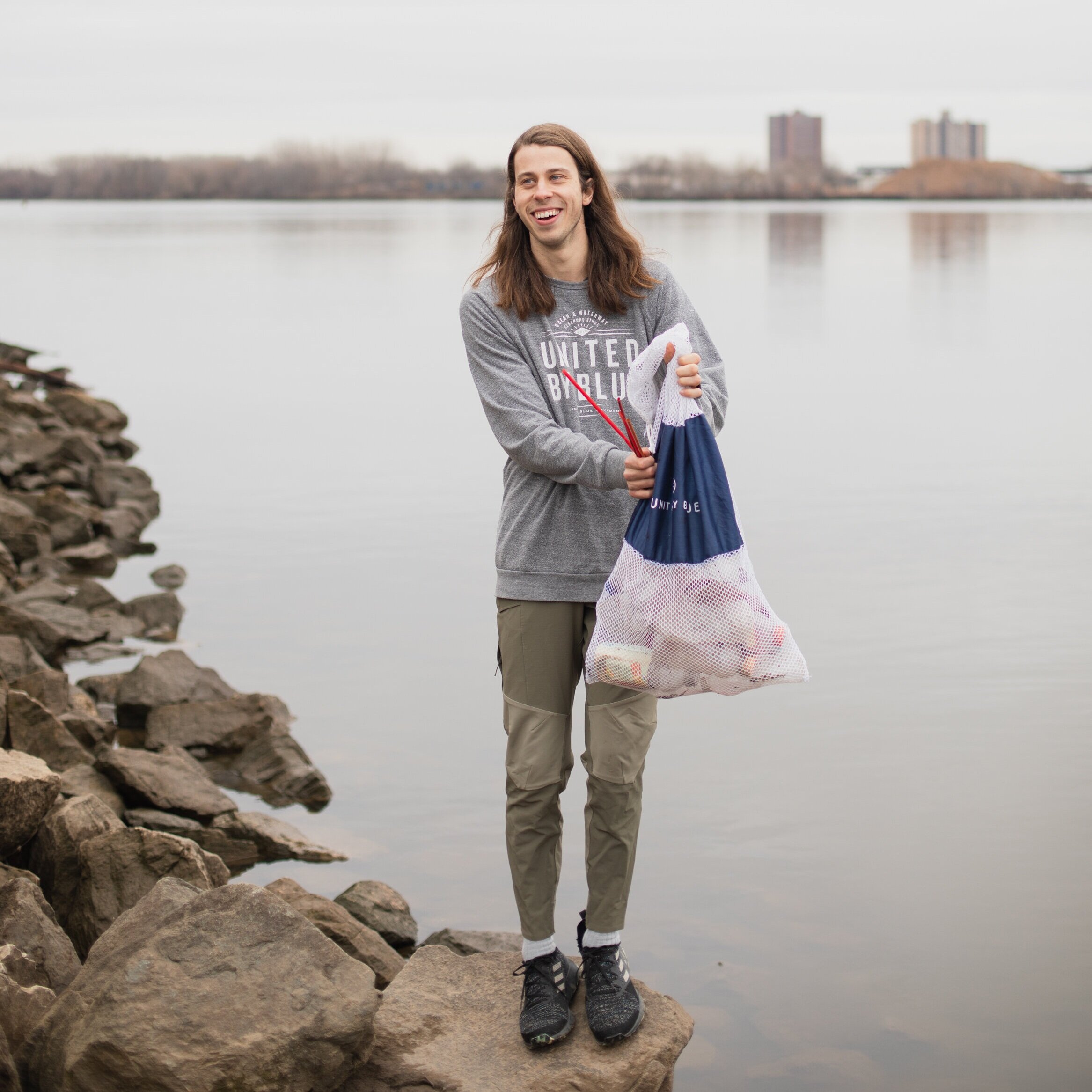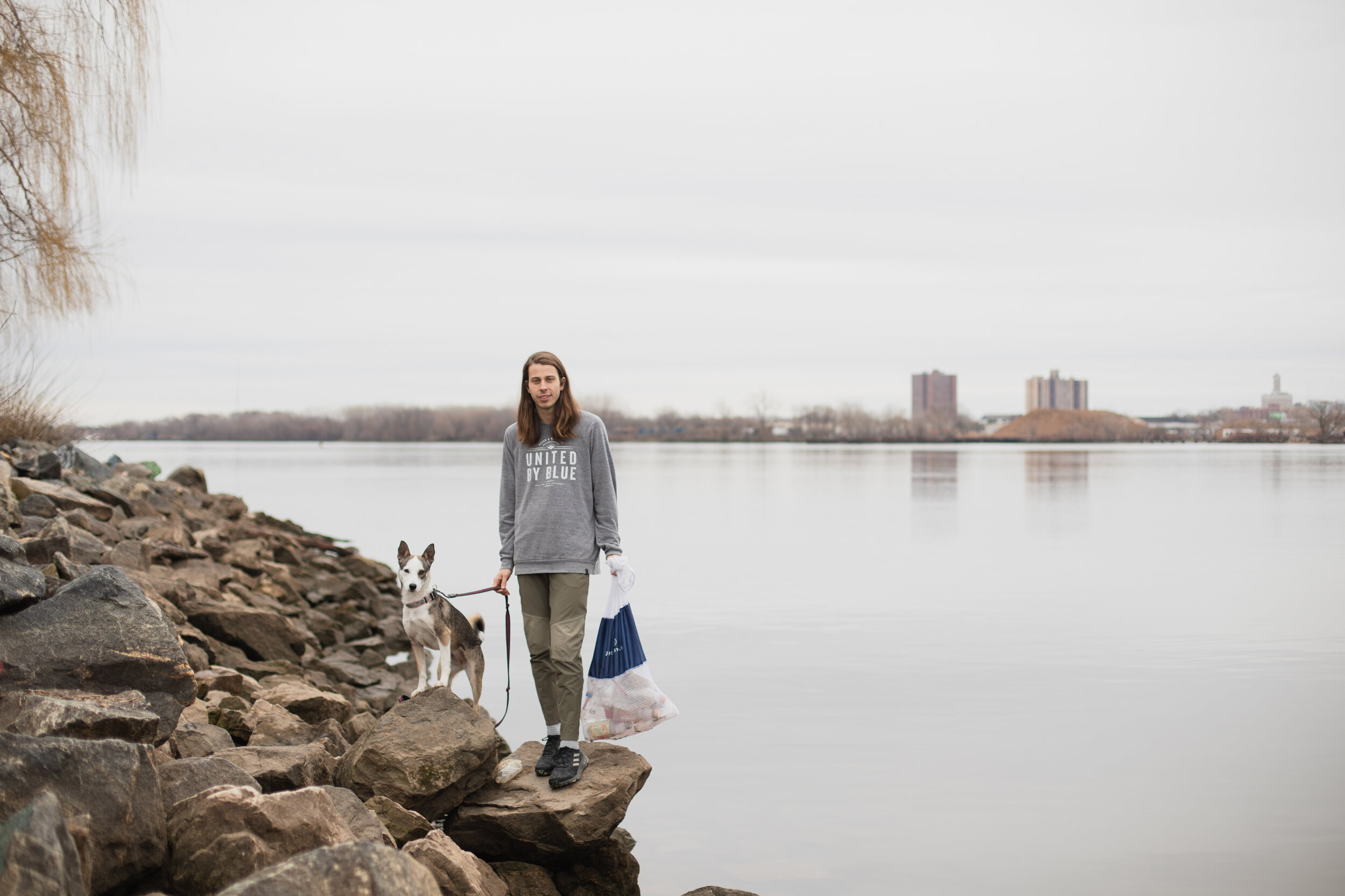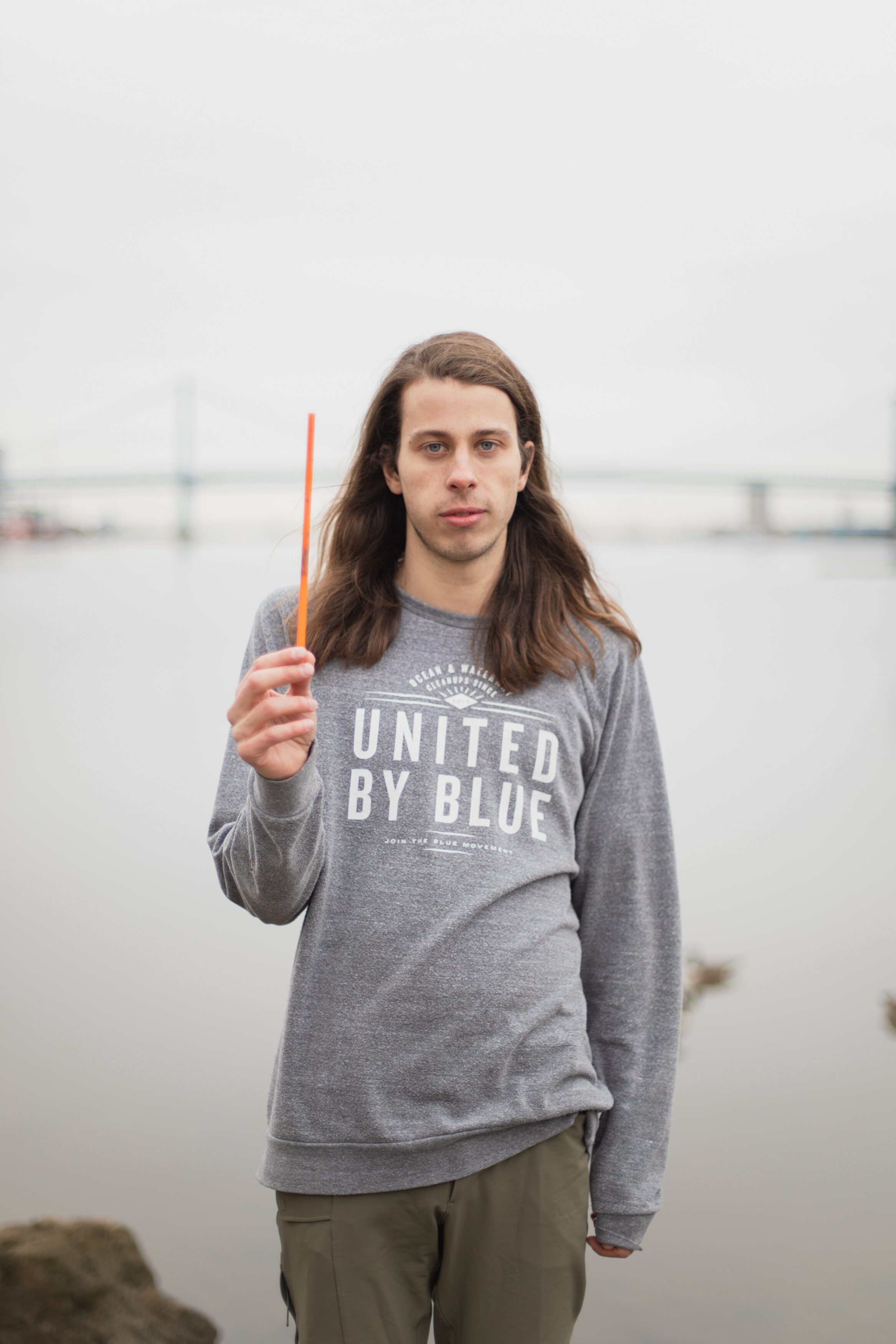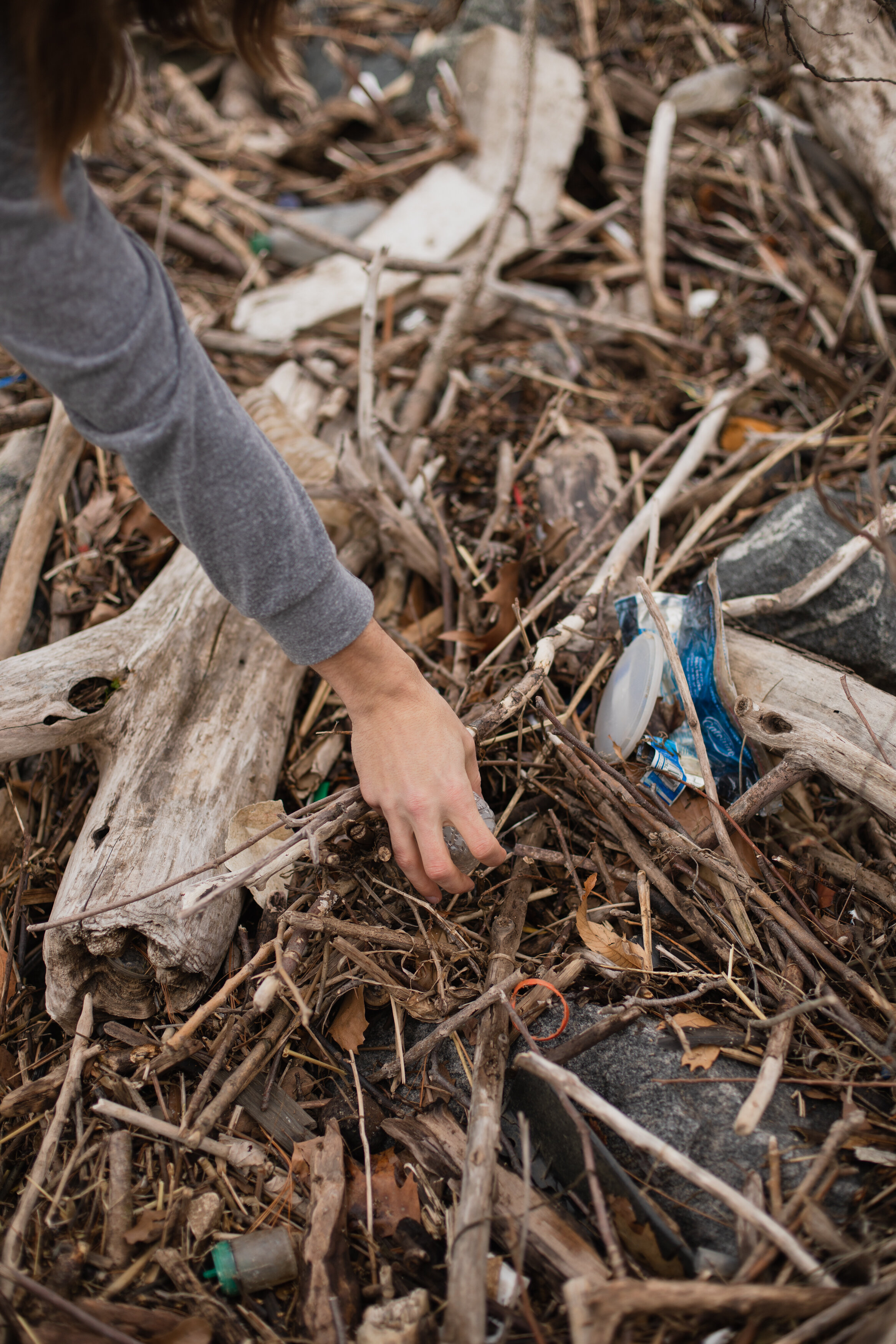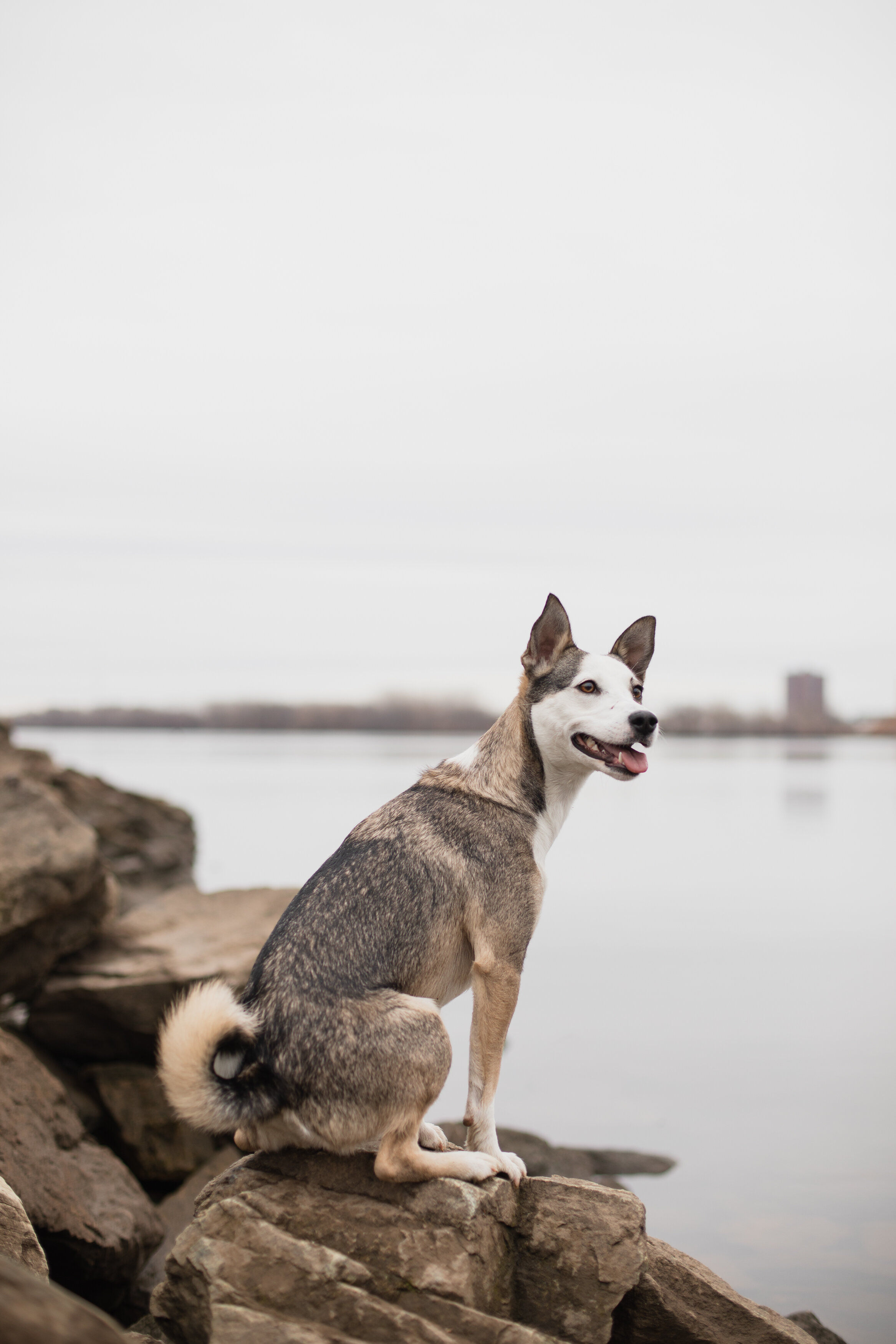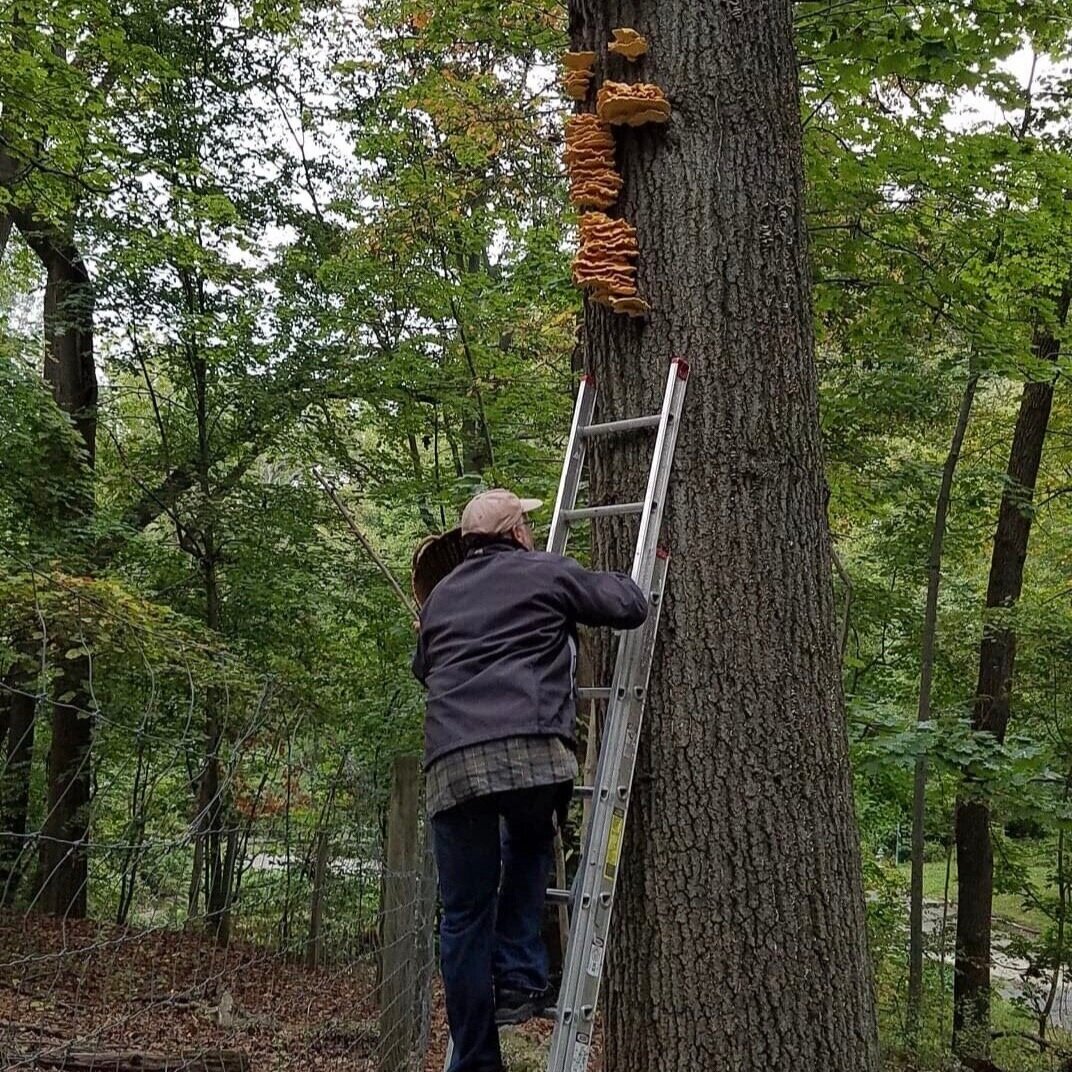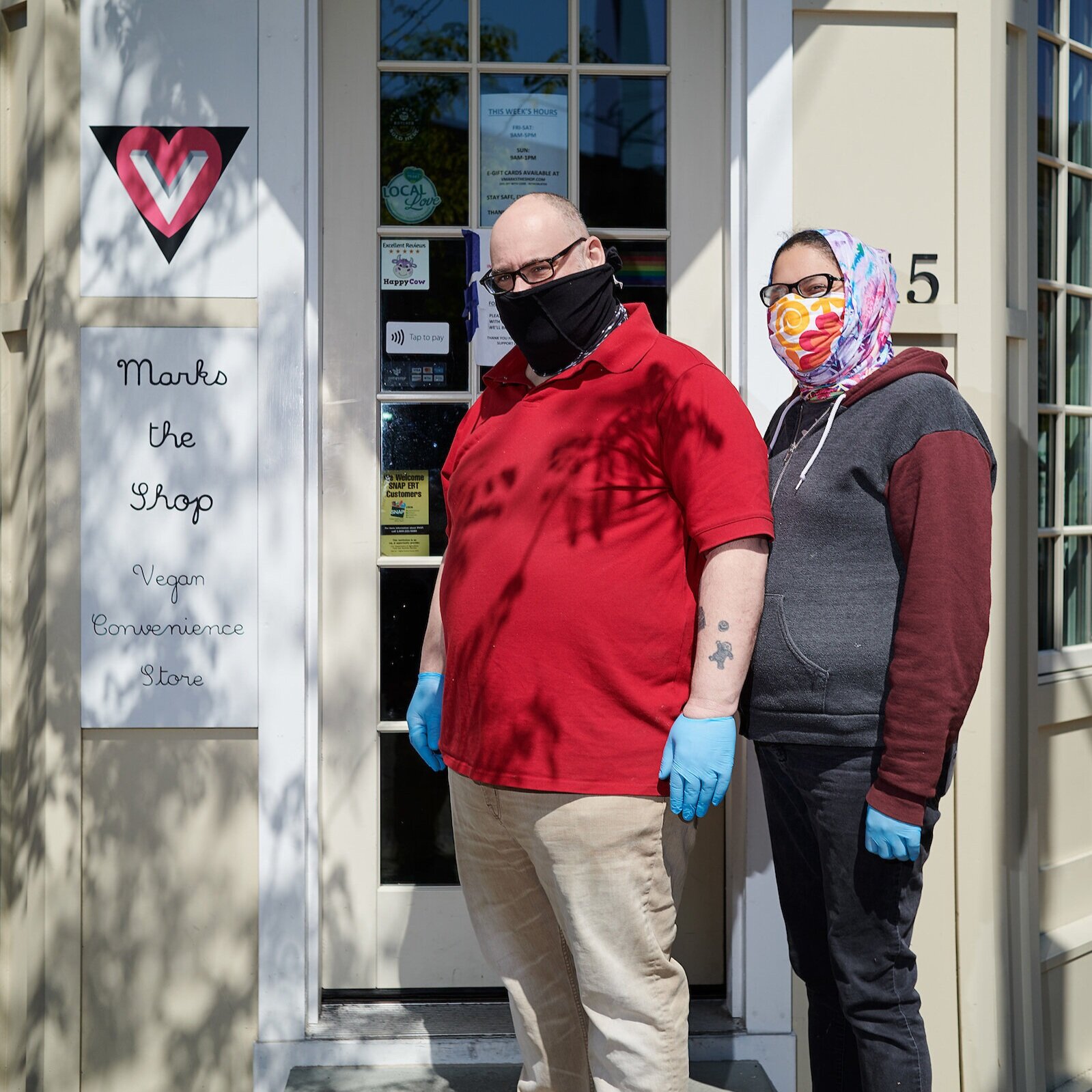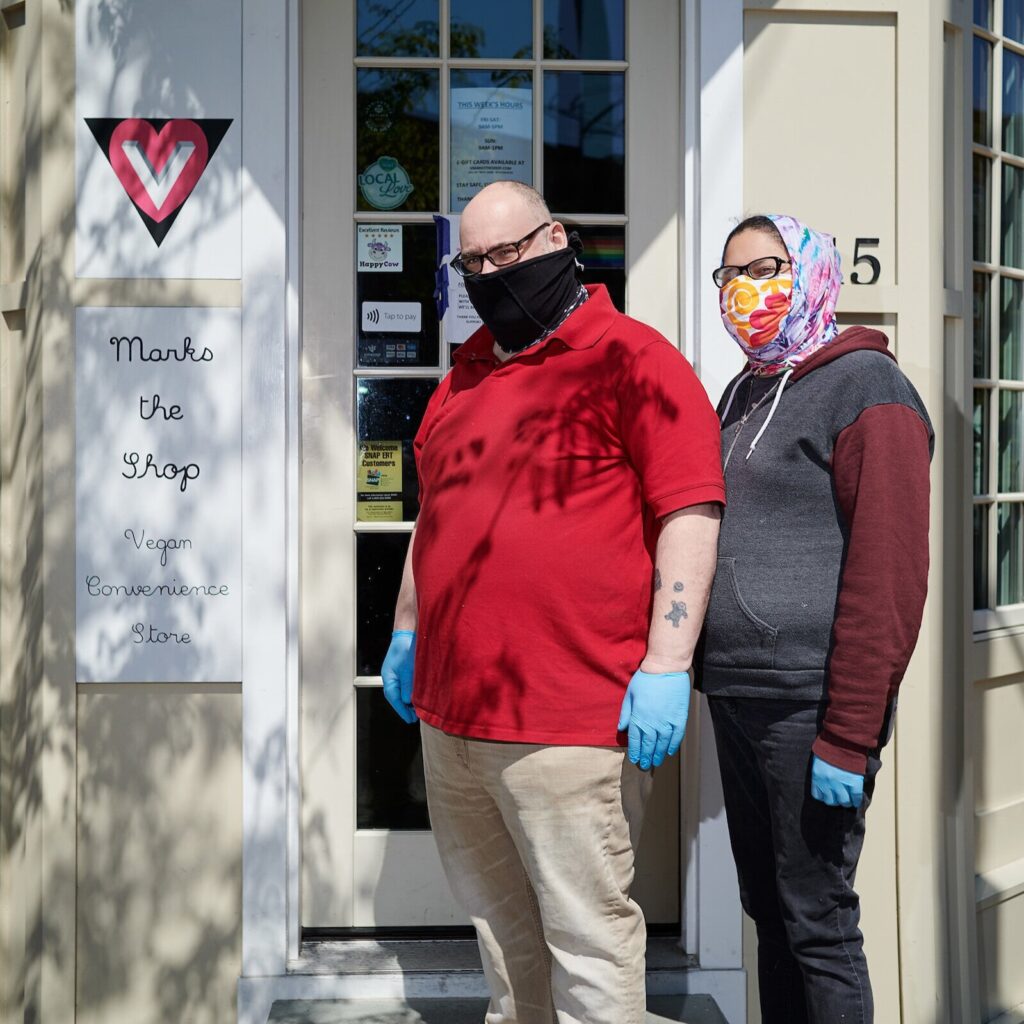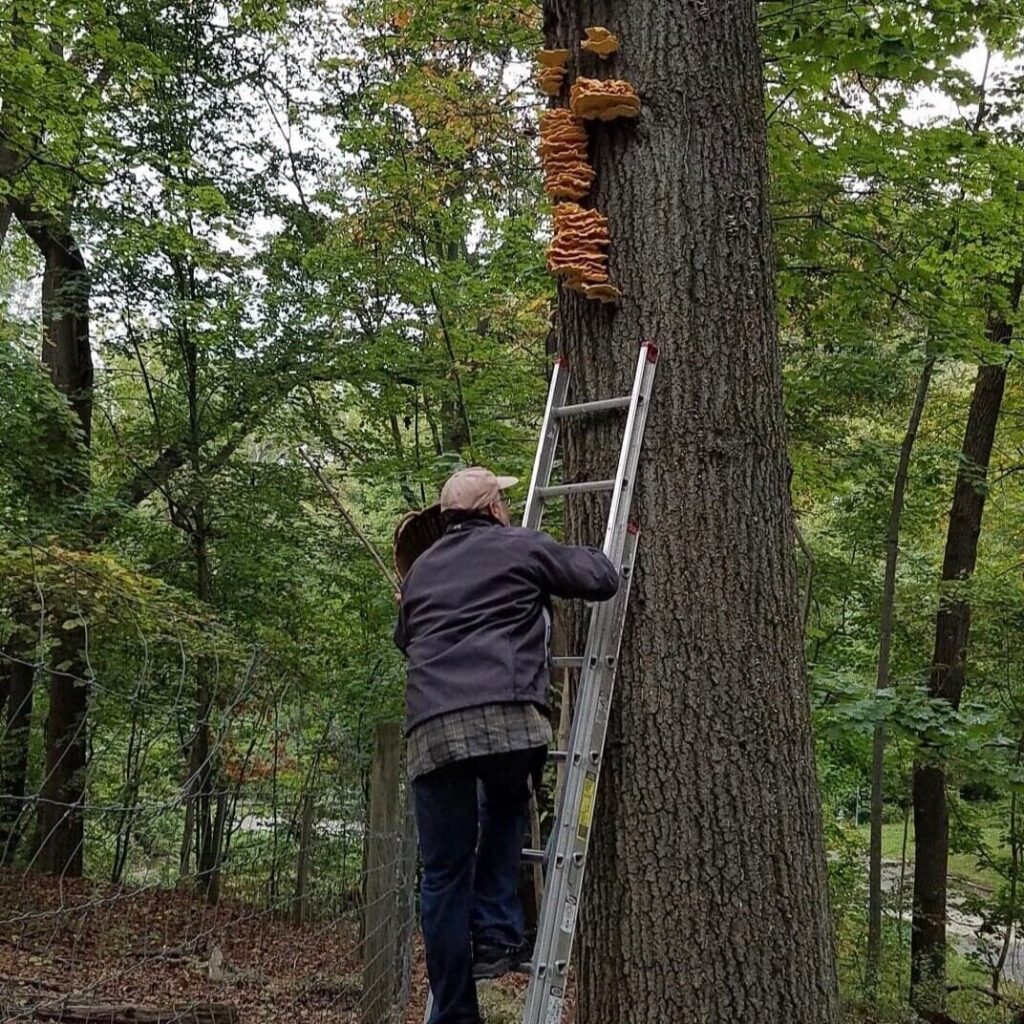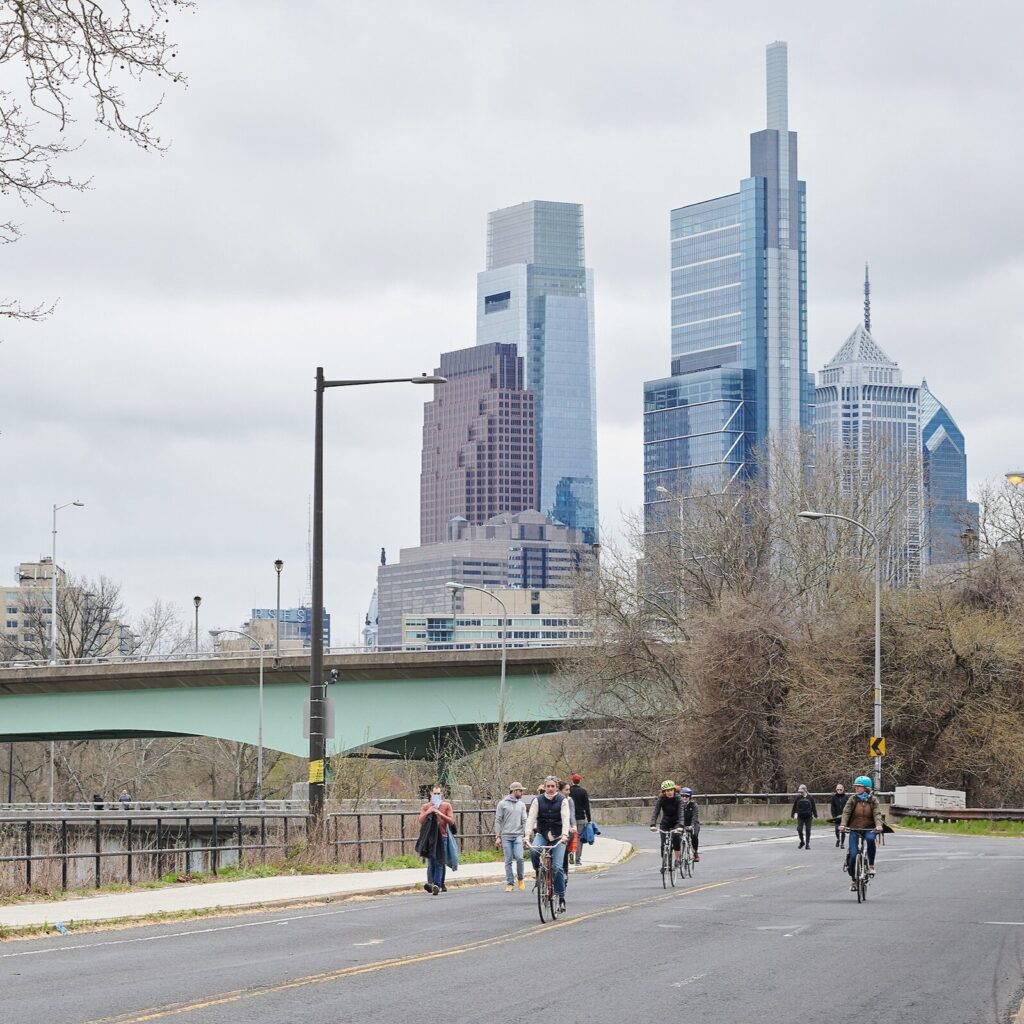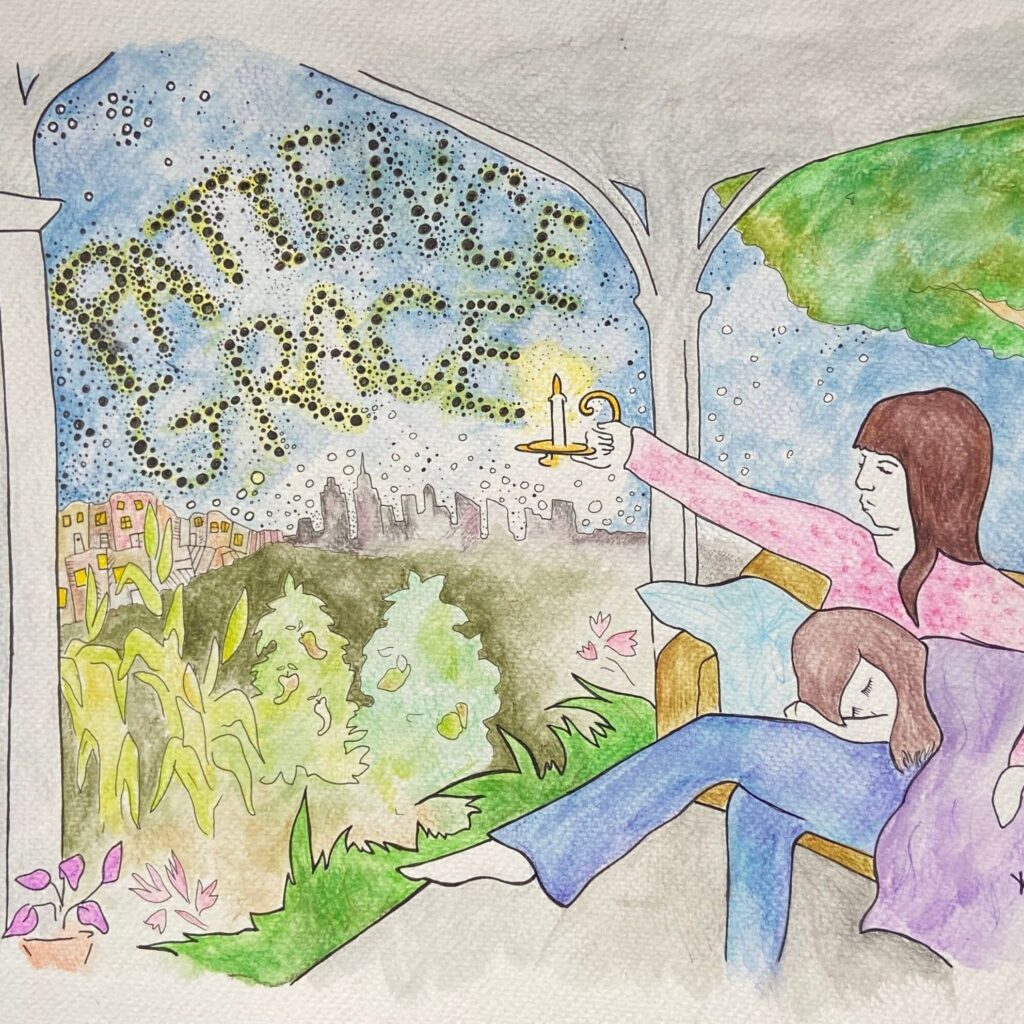Photography by Aubrey Abel
Waterway Protection: Cleanup Time
By Claire Marie Porter
Alec Clelland grew up on the isolated, South Jersey peninsula of Delanco, without much to do but explore the shoreline of the Delaware River. Doing so, he encountered lots of garbage, and occasionally brought back some of the “treasures” he found.
Despite aggressive cleanup efforts and notable improvements in fish populations and water quality during the last 50 years, the Delaware River is still one of the most polluted waterways in the country, according to PennEnvironment. In 2012, 10 million pounds of toxic chemicals were dumped into Pennsylvania waterways, making the Delaware River the seventh in the nation for highest amount of toxic discharges at the time.
You could say Clelland, now 27, grew up with a heart for trash—but it wasn’t until he was a bit older that he realized pollution was more than just an individual person’s litter.
Clelland moved 5 miles north to Palmyra, New Jersey, when he was 17 years old, and lived across the street from the Palmyra Cove Nature Park, a bird sanctuary with very little pedestrian traffic, he says. But he was shocked that it had even more trash than the peninsula he grew up on. He poked around and found that a dump was backed right up to the park—the wind blew trash from the dump into the sanctuary.
He had a realization:
“Clearly, it’s not people just being jerks,” he says. “It’s definitely more of a systemic issue—a design flaw.”
Every day, an estimated 38,356,164 pounds of trash are dumped into our oceans, due to illegal dumping, unregulated communal dumps and marine-based pollution, like vessels dumping garbage overboard.
He realized that targeting those at the top would be more productive than targeting individual litterbugs, and getting involved with cleanup at a systems-level grew increasingly important to him.
Clelland began hosting cleanups with a few friends at a time along the river in Palmyra. He also worked for lululemon athletica in his early 20s, and hosted cleanups at local parks and community gardens for them as part of a grant program.
In 2018, Clelland applied for an internship with United By Blue, an outdoor brand that removes a pound of trash from oceans and waterways per purchase. To date, more than 3 million pounds have been removed. The company, which factors sustainability into all of their products, sells clothing and everyday reusables kits that include everything one needs to remain plastic-free throughout the day, such as straws, utensils, beverage holders and meal kits, among other things.
After completing his internship, Clelland was hired by the company this past January, and began working as its cleanup operations associate, before all future cleanups were postponed due to the COVID-19 outbreak, and he was subsequently laid off.
Photography by Aubrey Abel
Clelland’s job entailed event planning, particularly that of nationwide cleanups. They got the bulk of their weight with “high-yield cleanups,” he says, which include hired crews that remove large amounts of trash. They just removed 750,000 pounds of trash from Trenton at the end of February.
“For high yield, we don’t typically go back to the same location since most of the locations are what’s called a ‘legacy dumpsite,’ which takes years to get as bad as they are when we step in,” he says.
Clelland hosted 15 nationwide cleanups last year.
He says people leave the cleanups with a different perspective on trash.
“Once someone picks up five Dunkin’ Donuts cups,” he says, “they’re like, ‘I’m never using one of these again.’”
The massive quantities of familiar-looking garbage that volunteers interact with every day seems to have a big impact, he says.
“It’s the repetition of being in their face,” he says.
Often, volunteers came to the cleanups because they’re a fun, outdoorsy event, and great excuse to get outside.
The cleanups averaged 198 people nationwide, but the local average at their Philadelphia cleanups was much higher—between 300 and 400.
“Philly loved our cleanups,” he says.
People would often come in groups and stick together, says Clelland. But it was most powerful to him when people came alone. Typically the loners will quickly start talking with one another and find common connections with ease while picking up trash side-by-side.
“It offers this environmental-awareness opportunity,” he says, “but also human connections.”
Clelland’s shepherd-mix rescue Yolla joins him on almost every cleanup. Together they have collected more than 10,000 plastic straws.
Plastic straws are the more normal things Clelland has found during cleanups, among things like firearms, porcelain dolls, and safes. A volunteer in Philly Mills once found a $100 bill and donated it to a nonprofit.
“We’ve never saved anything. Maybe we should’ve started a little museum,” he says.
Photography by Aubrey Abel
In February, while scouting a site for a cleanup, Yolla found a deer antler in the middle of West Philly and has been gnawing on it ever since, he says.
The 25 cleanups he’d planned for later this year have been postponed indefinitely, and “virtual cleanups” have taken their place, led by United By Blue’s Cleanups Coordinator, Maria McDonald. With guidance from an Instagram Live video, volunteers can grab their quarantine partners and head to a local waterway or park where they can safely dispose of trash and recyclables.
In a time when the zero-waste movement and sustainable living have taken a back seat to survival, Clelland encourages readers to still make those conscious decisions when possible.
For him and his fiancé, eating a plant-based diet for environmental reasons has been difficult to maintain in the midst of a pandemic, but he says trying to be mindful, and not getting caught up in the guilt of one bad decision is essential.
He says to try avoiding things you don’t need, especially when you’re bored.
“Being stuck at home and having access to the internet can be a slippery slope when it comes to buying things we don’t need,” he adds.
Take this time to reflect on the things we were able to live without, like eating out, and using single-use plastics that often come with takeout containers.
“We have the time to cook at home, and by doing that, we can avoid altogether the packaging that comes with takeout food,” he says. And by doing so, we can re-evaluate a new and better normal when the time comes.
“When we rush back to these lives, it’s important to think about what we’re actually getting back to,” he says. “We get to decide what that normal should look like.”
For Clelland, his experience has shown him that his passion can be maintained through a work environment, and he has no plans to diverge from that.
“My fiancé and I are currently looking at a move to the West Coast,” he says. He’s looking for jobs that mirror his values over there. He says he would love to open a cleanup operation on the West Coast for United By Blue or join a like-minded organization—or maybe even an operation of his own.

